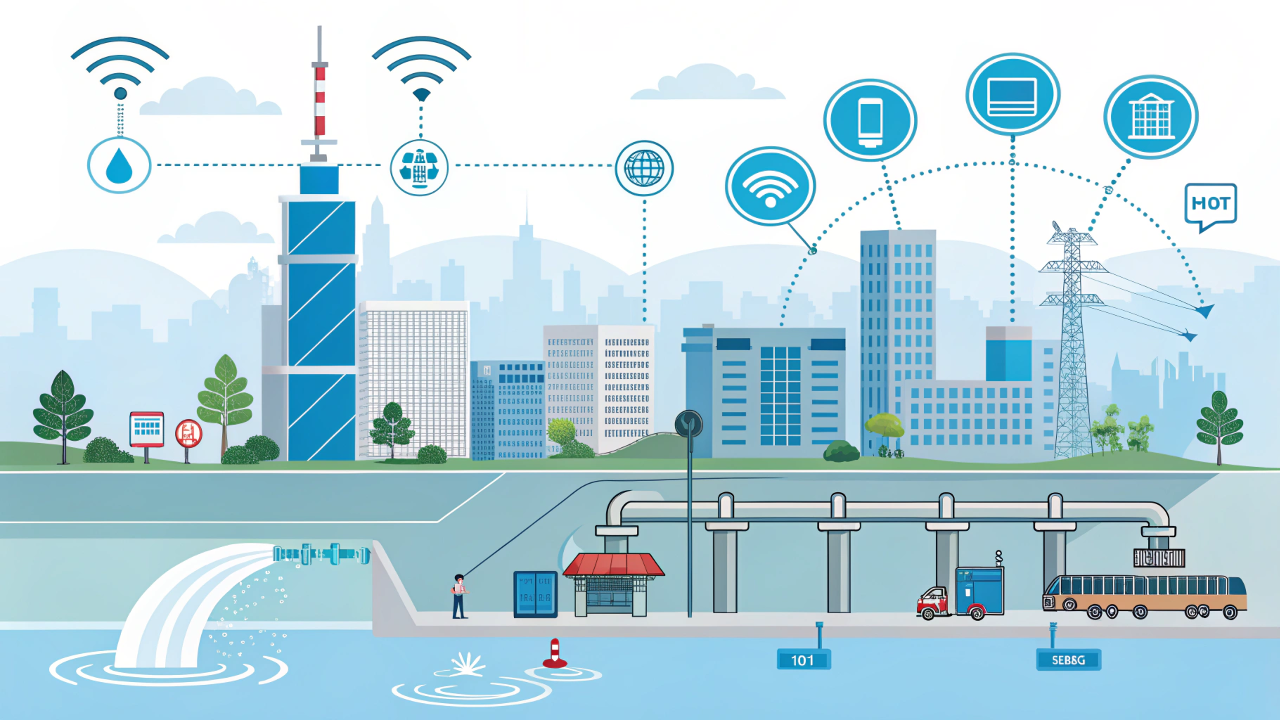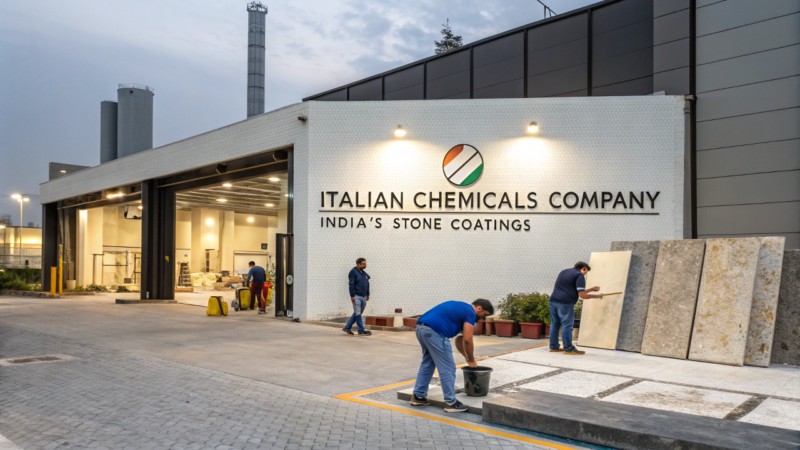
Introduction
With rapid urbanization, India’s water demand is set to exceed supply by 50% by 2030 (NITI Aayog, 2024). Smart water management, powered by IoT, AI, and digital transformation, is emerging as a crucial solution to optimize water distribution, reduce losses, and enhance efficiency in Indian cities.
As cities face increasing challenges from water scarcity, climate change, and aging infrastructure, deploying intelligent water networks is becoming a necessity rather than an option. The integration of real-time monitoring, AI-driven analytics, and cloud-based solutions is helping Indian utilities improve efficiency, minimize wastage, and ensure 24×7 water supply.
This blog explores how smart technologies are revolutionizing water management, the investment landscape, case studies, and global business opportunities in India’s urban water sector.
Why India Needs Smart Water Management
1. High Non-Revenue Water (NRW) Losses
- India loses 40-50% of its treated water due to leakage, theft, and inefficient distribution.
- Smart metering & AI-based leak detection can help cut NRW losses by up to 30%, reducing financial losses for municipal utilities.
- Pilot projects in Bengaluru and Mumbai have shown that digital water monitoring can lead to a 25% reduction in water loss.
2. Urban Water Crisis & Demand Growth
- By 2030, India’s urban population is expected to reach 600 million, intensifying the demand for clean drinking water.
- Smart Cities Mission and AMRUT 2.0 mandate 24×7 water supply projects using IoT-enabled monitoring.
- IoT-driven predictive maintenance improves operational efficiency of water utilities by detecting leaks and optimizing supply networks.
3. Government Support & Policy Push
- Jal Jeevan Mission (₹3.6 trillion): Adoption of SCADA & GIS-based water distribution.
- Smart City Water Management (₹48,000 crore): Focus on real-time water quality monitoring and AI-driven analytics.
- India’s National Water Policy: Encouraging cities to integrate cloud-based digital water management.
Emerging Technologies in Smart Water Management
1. IoT-Based Smart Water Metering
- Automated real-time water usage tracking via smart meters.
- Reduces billing discrepancies and detects unauthorized water consumption.
- Municipalities in Pune and Hyderabad have piloted digital meters, leading to a 20% increase in revenue collection.
2. AI-Powered Leak Detection & Water Quality Monitoring
- AI algorithms analyze consumption patterns to detect leaks in pipelines.
- IoT sensors monitor pH, TDS, and contamination levels in real-time to prevent health hazards.
- Case Study: Delhi’s Yamuna water quality monitoring system utilizes IoT sensors to provide real-time alerts on pollution spikes.
3. SCADA & GIS-Based Water Distribution
- SCADA (Supervisory Control & Data Acquisition) ensures remote control of pumping stations and water distribution grids.
- GIS mapping helps track underground pipelines and identify areas with high leakage.
- Cities like Ahmedabad and Chennai have used SCADA-based automation, improving efficiency by 30% in water supply operations.
Global Investment & Business Opportunities
1. PPP-Driven Smart Water Projects
- PPP (Public-Private Partnership) Models in 24×7 water supply projects.
- Foreign players investing in Indian smart water projects include Veolia, Suez, and Xylem.
- Mumbai, Chennai, and Hyderabad have opened tenders for smart water grid implementation worth ₹8,000 crore (~$1 billion).
2. Technology & IoT-Based Solutions
- AI & IoT companies can enter India’s water tech market through joint ventures.
- FDI-friendly policies make it easier for foreign firms to invest in smart infrastructure development.
- Blockchain applications in water management are emerging, allowing decentralized tracking of water usage and conservation credits.
3. EPC & Infrastructure Development
- Smart STPs (Sewage Treatment Plants) & WTPs (Water Treatment Plants) need automation, predictive maintenance & digital twins.
- Solar-powered water utilities & AI-integrated water grids are gaining traction in states like Gujarat & Rajasthan.
- Case Study: Bengaluru’s AI-integrated STPs led to 40% energy savings and improved wastewater reuse for industrial purposes.
Challenges & Solutions
1. High Initial Costs
- Government incentives, Viability Gap Funding (VGF), and Smart City Mission grants are available.
- Foreign investors can participate in hybrid annuity PPP models to reduce financial risk.
2. Technological Adoption Barriers
- Lack of awareness & skilled workforce remains a challenge for smaller municipalities.
- Solution: Collaboration with international training partners for skill development.
3. Data Security Concerns
- IoT water networks are vulnerable to cyber threats.
- Blockchain-based authentication & AI-driven threat detection can enhance cybersecurity.
Future of Smart Water Management in India
- AI-driven water distribution grids will become standard in all major Indian cities by 2035.
- Expansion of digital water solutions to rural areas through integration with satellite-based water resource tracking.
- Smart water management will reduce India’s annual water loss by $3 billion by 2040 if fully implemented.
Conclusion
India’s smart water management transformation presents a $10+ billion market opportunity for global players. From IoT-powered leak detection to AI-based demand forecasting, companies investing in digital water solutions will play a crucial role in solving India’s water crisis.
External References & Citations:
- NITI Aayog – India’s Water Crisis & Digital Solutions
- Smart Cities Mission – Smart Water Infrastructure
- Ministry of Jal Shakti – Digital Transformation in Water Management
- PPP India – 24×7 Smart Water Supply PPP Models
- World Bank – Water Smart Cities Investment Reports






